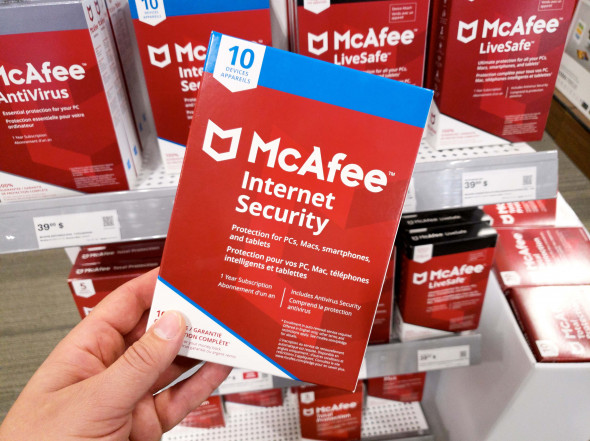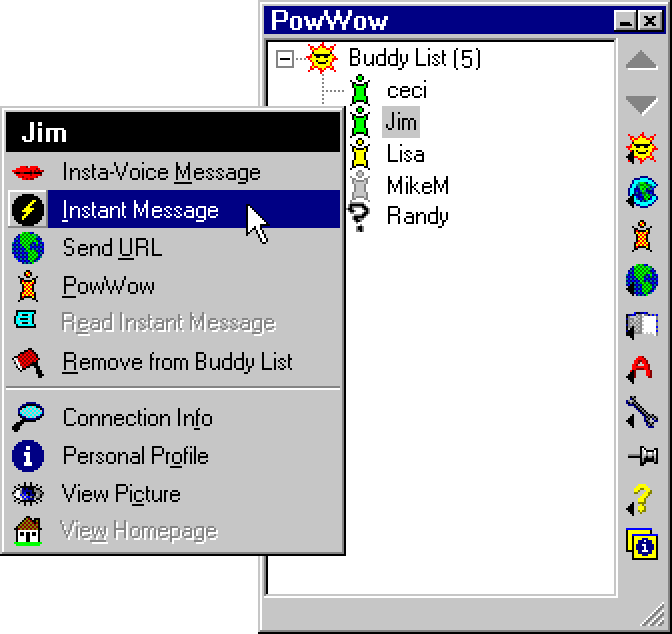
On Habré today, the news about the death of McAfee was published, which probably upset many readers - after all, despite his eccentricity (we will mention this for the first and last time - below we will tell you why), he was a very talented and versatile person.
In this article, we will not talk about McAfee's personal life - this is his business. Let's talk better about what he created, what he could create and his legacy that has come down to this time. And he developed not only antivirus, McAfee had several other interesting projects.
The beginning of everything
McAfee was born on September 18, 1945 in the UK, after which the family moved to the United States, to the city of Salem, in Virginia. Accordingly, John had two citizenships at once.
Not much is known about how he studied at school, and it makes little sense to find out. All the fun began after graduation, when McAfee entered Roanoke College in Virginia. He entered the Faculty of Mathematics, where he showed outstanding results.
So much so that he was invited to work at NASA immediately after completing his studies. He became a computer programmer after moving to New York. After working there for two years, he moved to Silicon Valley, where he used his abilities and connections to create a dating service. McAfee also worked for Univac and Xerox, serving as an architect of operating systems.
Over time, the computer industry developed and companies increasingly needed highly qualified specialists, one of whom was John. So, in the mid-80s of the XX century, he was invited by the largest aerospace corporation Lockheed Martin. While working in it, McAfee developed his own antivirus.
McAfee Associates

In the 1980s, viruses began to appear. In 1986, one of the first "pandemic" viruses appeared and spread very quickly. It was written by brothers from Pakistan Amjat and Bazit Alvi. Since then no one had special experience in detecting viruses, they discovered it in 1987, in the summer.
In 1987, John McAfee founded his company McAfee Associates, which was engaged in the treatment of computers from malicious software, which was becoming more and more. In the United States alone, a virus created by Pakistanis has infected about 18,000 computers.
At the same time, the brothers Amjat and Bazit themselves did not want anything bad either to America or to other countries. They developed their program to punish pirates who copied their company's software. The fact that the brothers did not conceive any hacking is evidenced by the presence of their names, address and phone number in the program itself.
The Brain virus, as it got its name, was the first stealth virus that, when trying to read an infected sector, gave out its uninfected original. Be that as it may, John's company began to help users and corporations treat PCs and they succeeded - gradually the company expanded. First, McAfee infected his own PC with a virus, studied the behavior of the malware, and learned how to destroy it. After that, one of the first (but not the first) antivirus programs, Virus Scan, was written.
In 1989, McAfee left Lockheed Martin to fully immerse himself in antivirus software development and company management. 1992 the company was registered in the US tax-free state of Delaware.
Growth continued, albeit not without problems - McAfee was accused of writing the Michelangelo virus and inflating rumors about it, which allowed antivirus sales to grow. In any case, the company grew so much that the number of employees reached 10,000. According to John, it was then that it was time to leave, because he did not enjoy the management of the company - he wanted to program, not deal with shareholders. As a result, he hired an ex-IBM top manager who began to run the antivirus business. He himself left McAfee after the company went public. By the way, McAfee could have been sold to Symantec even earlier - one of his acquaintances dissuaded John from this step.
In 1997, MacAfee merged with Network General, after which the new company Network Associates was formed. She later bought a competitor, Dr. Solomon's Group, and continued to grow. In 2004, Network Associates was renamed McAfee. Well, in 2010, the company's shares were bought by Intel for $ 7.68 billion. In 2014, the division became known as Intel Security, but the antivirus logo remained the same, plus a number of the company's products retained McAfee in their names.

Despite the crises, the unit works and does not have any special problems. So, in September 2016, Intel sold 51% of shares to the TPG investment fund for $ 3.1 billion. In October, the company held an IPO, as a result of which it managed to raise $ 740 million. The total capitalization as a result amounted to $ 8.6 billion .
The mcafee.com website still exists. It offers McAfee Total Protection antivirus product. As of May 2020, McAfee was installed on 7.57% of Windows devices, according to analyst agency OPSWAT. It is the sixth largest in the market, with the top five being held by Symantec, AVAST, ESET, Webroot and Malwarebytes.
PowWow
Almost immediately after leaving the company, John McAfee took up new projects. The most popular and successful of them is the PowWow multimedia messenger. It was a very powerful internet messenger that, under certain conditions, could outshine ICQ, Skype and others like them.

He did not develop the messenger himself. To do this, John founded TribalVoice, which has been trying to develop this product for several years. The idea is based on the Indian traditions that McAfee got acquainted with during his travels.
It wasn't business-oriented, but it was great for individuals and communities. After some time, this software even began to be called "the world's first social network." The program even had a voice chat, which, albeit with problems, but worked .

The disadvantages of the site and the application itself were a somewhat strange interface, unusual terms copied from the vocabulary of the Indians, bright colors and strange ways of promoting. Nevertheless, the project managed to gain 700 thousand users in 1997 (which was an achievement in itself).
According to McAfee, the app attracted many people with different interests, and users could join in "tribes."
The company and its product began to attract attention and business. So, she managed to conclude a contract with AT & T, after which the messenger began to be used to communicate with clients of the WorldNet service. TribalVoice collaborated with other companies. During a certain period, it became possible to communicate with users of other instant messengers, including AOL Instant Messenger.
In 1997, John sold half of his company for $ 10 million, and two years later he raised $ 17 million for the sale of the entire CMGI company. As far as you can understand, he again faced the fact that he had not to program, but to manage the company, solving small and large administrative problems.
After McAfee left the company, she started having problems, most of which were provoked by AOL. The latter did not like very much not only the rapid development of PowWow, but also the attempts of developers to make their platform universal. It got to the point that the US Federal Trade Commission, which, as you know, does not like to joke, was involved in the dispute. Ultimately, the development of the messenger was completely discontinued in 2001.
Here one can only guess what would have happened if McAfee had not left the company - perhaps he would have managed to avoid problems and develop it to the scale of his previous business.
What else?

In the new millennium, McAfee amused himself and did not start anything particularly serious. Two of his projects became more or less famous - a company for the development of non-chemical (plant antibiotics), which was closed due to accusations of creating narcotic substances.
And the second project is observational yoga. John was able to develop the idea of "observant yoga" where people, watching others do yoga, paid $ 200 an hour for the pleasure. In addition, McAfee has written several books on yoga.
He was also involved in blockchain, and suddenly became something of an authority in this area - his opinion was listened to, and so much so that he was even accused of market manipulation.

Unfortunately, McAfee will never be able to implement his ideas, some of which, according to experts, were ahead of their time - for example, the PowWow messenger. In any case, this talented person will be remembered by millions, and his name will probably be part of the name of antivirus products for a long time to come.
